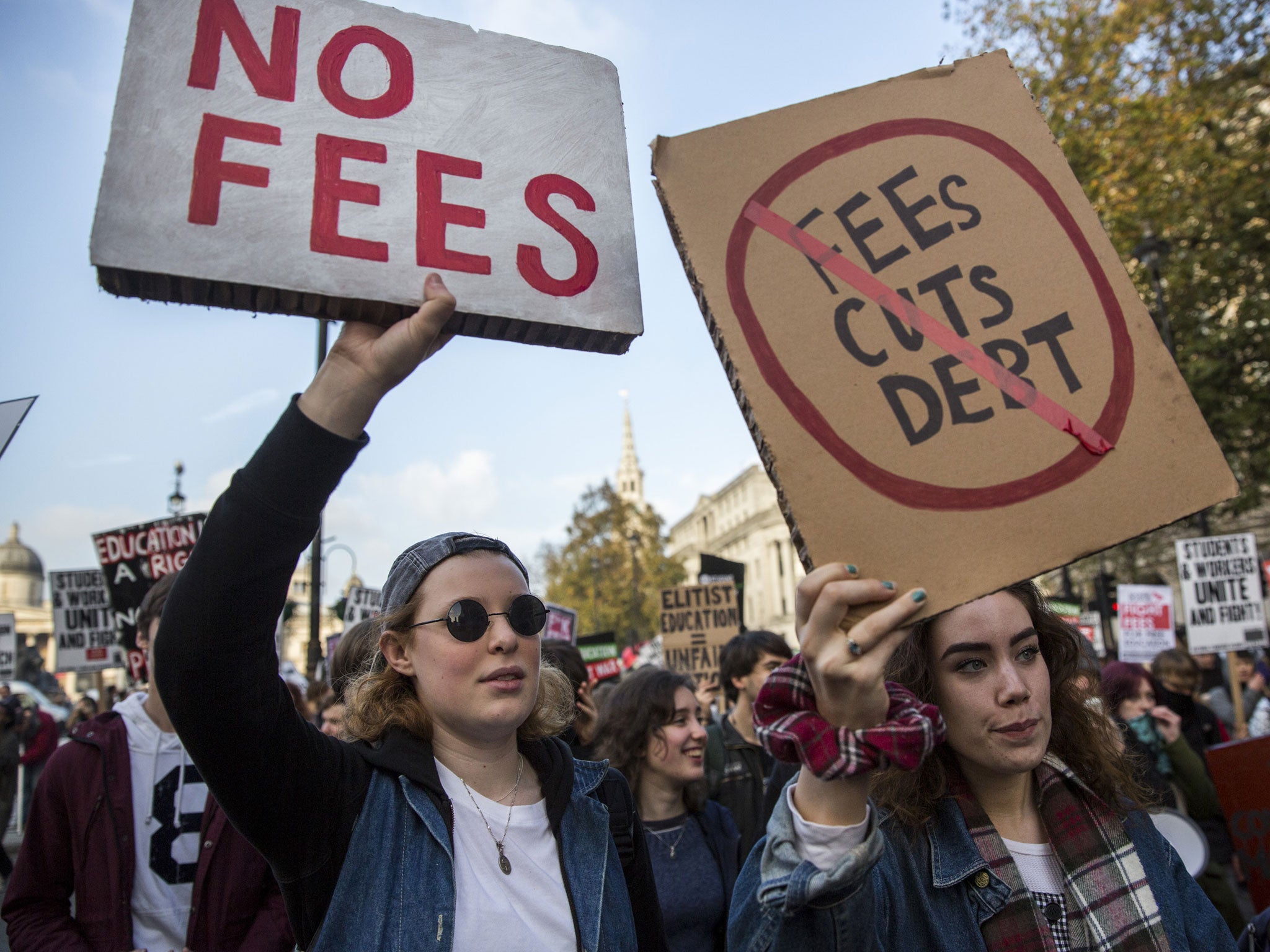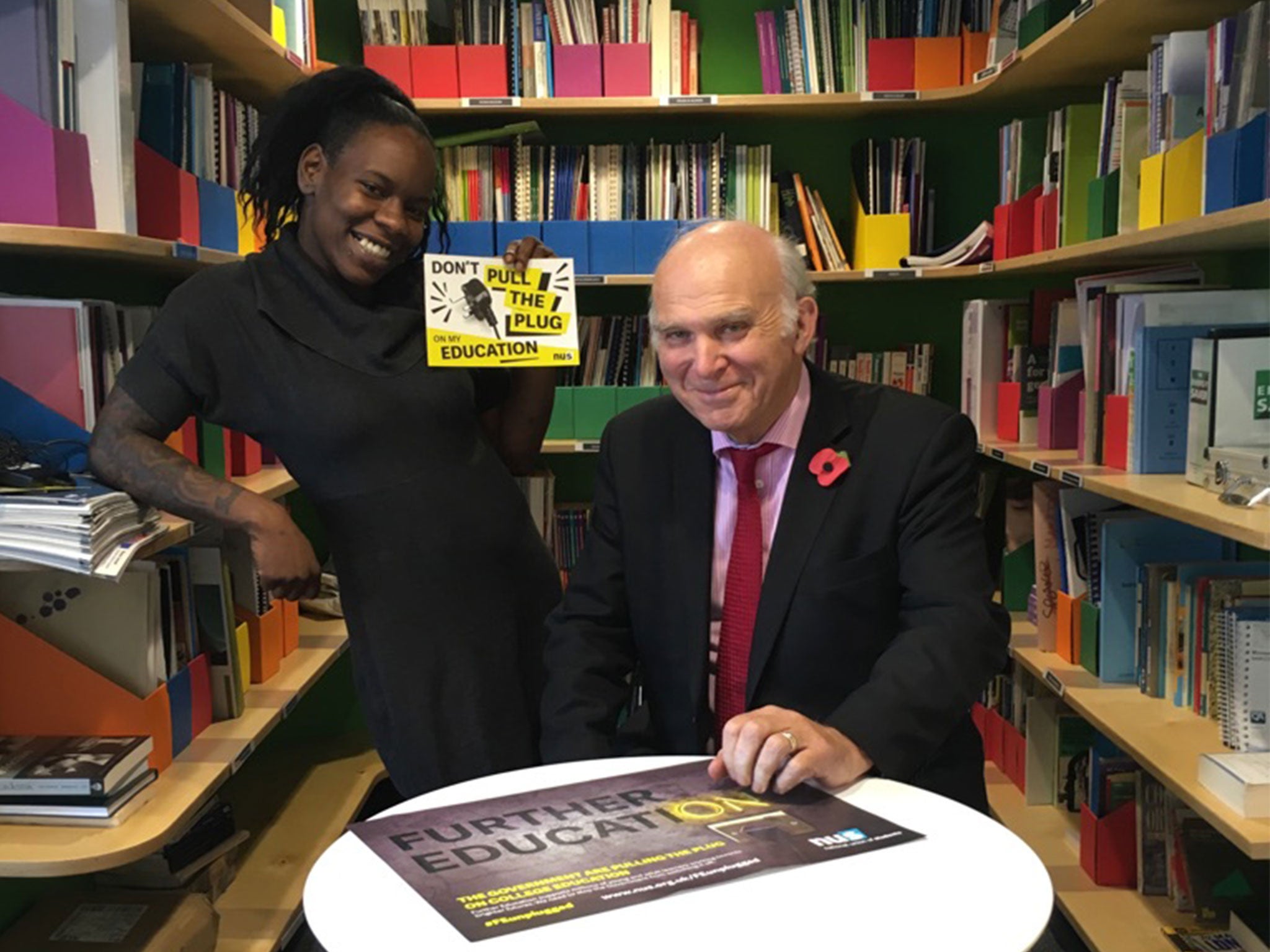Who is challenging the controversial NUS President Malia Bouattia? A look at the 2017 candidates
Over 1,200 students, elected officers and campaigners from higher and further education arrive in Brighton this week to debate key policy issues affecting the nation's students

Following a year of radical political change and ongoing racial tensions, students from across the country will soon cast their votes in the National Union of Students presidential election.
Controversial leader Malia Bouattia, who was elected as the first black female Muslim president last year, stands again alongside Further Education champion Shakira Martin and wildcard vlogger Tom Harwood, who made his name known through viral videos and a pledge to stop Isis.
The three candidates make for one of the most diverse election line-ups in NUS history – but who are the characters behind the cause? The Independent speaks to all three hopefuls to find out…
Malia Bouattia (Current president)

Age: 30
Campaign tagline: “Malia for a Strong, Transformative Union”
Manifesto in a nutshell: Fighting against the HE Bill and Prevent, supporting trade unions to halt job cuts and college closures
USP: Grassroots voice of the student left
Why should you be president?
Given the political context we’re in and the massive uncertainty, I’m the one with the strongest track record who has literally dedicated my life to fight for education. My parents gave up everything fleeing Algeria to come here so that I could study in safety. So it’s kind of been instilled in me from a very young age what the value of education is and people’s right to access it.
How are you different to the other candidates?
I’m sure all the candidates are dedicated to the future of education, but at this point given the uncertainty from the Brexit negations, to how the HE bill is going to play out and the cuts to our colleges and snap general election, it’s question of who’s going to come into that position of leadership and hit the ground running and do what it is necessary to ensure that students remain on top of the agenda.
How will you continue the fight for international students?
One of our crucial campaigns this year has been to ensure that international student numbers are removed from net immigration. We’ve seen the defeat in relation to that in the Lords but it’s about continuing to apply that pressure… I’m literally fighting individual deportation cases and ensuring the full weight of our union is behind international student.
How will you ensure student voices are heard in the general election?
In my plan of action this year we envisioned a snap election. We will ensure that we have massive voter registration drives, that we ally with all the groups from Bite the Ballot to Operation Black Vote and many others. [In terms of student political engagement] I’ll just keep going until it’s at 100 per cent.
How do you react to the disaffiliation of some student unions from the NUS in the past year?
[As] a presidential candidate I knew it was coming and it was one of the reasons I chose to stand. I understood there was discontent around value for money, around whether our democracy was accessible and available to everyone and engaging and whether our campaigns were relevant to the issues on the ground. We have had around 22 referendums and a huge majority chose to stay. I think those frustrations haven’t gone away. I’ve used my platform and my leadership this year to ensure that they are heard and addressed.
What is your proudest achievement as president?
There’s so many. I think having an NUS that is finally fighting alongside students and making the case for a free education.
On an international scale that I’ve been building relationships with unions across Europe because I knew that had to happen following Brexit, that we needed to rely on our European counterparts to ensure continued flow of research and exchange and placements and even employment and beyond that.
Do you regret some of the controversial statements that you’ve made (ie, allegations of anti-Semitism which were investigated last year)?
The comments were made almost 6 years ago and I recognise they were incredibly clumsy and I’ve apologised for it in the past as well. I guess what I hope people look at now is my actions and how I’ve prioritised fighting hate crime within our project of work within NUS and I’ve been one of the only presidents in recent history to do so.
Anything you’d like to add?
We’ve dealt with a lot of silencing and demonisation and hostility yet we continue to prove those myths wrong. We’re always there to fight whether its related to the future of our NHS or education as we know it, the shutting down of detention centres, we’re an incredible force made of many different people and I think the continuous attempts to homogenise us with what we think, what we want to do, what we’re about is a false and destructive one and I am looking forward to continuing to prove all those myths and actually build a base and revive our movement to its full potential.
Shakira Martin

Age: 29
Campaign tagline: Making Education an Option for Everyone
Manifesto in a nutshell: Expose and demolish class barriers in all forms of education, tackle student homelessness, anonymise Ucas applications system
Current role: Vice president for Further Education (FE)
USP: Vince Cable is officially a fan
What inspired you to run?
Over the past couple of years, I’ve spoken to so many students across the country who have said that the NUS is out of touch with its members and out of touch with students and not fighting for the issues that students care about. I want to put the NUS back into the hands of its membership and send the message to the heart of the government about what students want.
And what do students want?
The cost of living is too high – it’s leaving students in too much debt, they want support throughout their studies They want scholarships for postgraduate and student carers and student parents, they want an NUS that invests its money into developing resources to support student causes on the ground locally. They ultimately want an NUS that isn’t divided, that looks after the interest of all its students. They want a union that can show true leadership and doesn’t put politics before students.
Presumably a big part of that for you is making sure FE isn’t pushed out of the debate?
One hundred per cent. Approximately 4.1 million NUS members are from FE backgrounds so it’s definitely going to be my priority to ensure they are at the heart of the student movement. It’s about helping everyone’s journey.
What would you most like to change?
It’s about making our voice heard externally, but also it’s about time we had an NUS that was helping all students gain access to an education.
How would you help unite the student body?
By listening to what peoples’ priorities are, learning from the past mistakes made and leading a strong campaign to make changes to legislation to break down the barriers students face within their education.
How would you put pressure on the Government to protect international students?
This is a major concern as we leave the EU and it’s vital we continue the campaign to get international students removed from immigration figures and protect their rights to work and study here.
Why should people vote for you?
With my work in the NUS I’ve already put FE back on the agenda and secured a £500m investment into further education. But I believe what makes me different from the other candidates is my background. I’ve overcome adversity and I’m from a working class family. I came into this movement with nothing and because of that I’m very much a people before politics kind of person. I have a record of fighting for students at all levels. I understand the purpose of the NUS and if I was elected I would make sure it was at the forefront of everything I do.
I am a single parent and I have faced challenges, but the NUS has helped me and now I can appreciate my privileges and help others in return. I will bring the energy and fun back into the student community.
Tom Harwood

Age: 20
Campaign tagline: “For a Credible, Inclusive NUS”
Manifesto in a nutshell: To make the NUS “inclusive”, tackle mental health stigmas, combat sexism, fight anti-Semitism
Current role: Second-year politics student at Durham University
USP: Penchant for satirical campaign videos
Why should students vote for you?
The NUS is in crisis and it’s failing students. I’m standing to re-legitimise a movement that has so alienated the majority of students in this country. We have to become more moderate, inclusive, and credible as a national union. We have to change now otherwise more university SUs will leave and NUS will continue to fail students on the real issues of living costs, anti-Semitism, and housing.
You've said the NUS is in "crisis"; what do you think is so broken about student politics?
The NUS has failed in including students in the movement. Nationwide, turnouts in NUS delegate elections are pitifully low, it is common for turnouts to be below 5 per cent. This is not good enough. It seems that every week there’s a new anti-Semitism scandal, and the current leadership of NUS is refusing to change. Intimidation is rife, and the hard factional politics push students away.
By allowing all students to vote for an NUS president we can take it back to reality. We can push power out of the hands of self serving factions and to the students we are supposed to represent.
The Times called your candidacy a “manifesto of mockery”. Are you a serious contender?
My campaign is certainly fun and engaging but that I don’t take serious issues very seriously. The comical pledges in my manifesto effectively and poignantly satirise the silly motions the NUS has discussed and passed in recent years. Students understand this and when they see my comical pledges alongside my serious ones, they know I am the right choice for NUS President.
Do you think your sense of humour makes you more approachable, or easier for students to get behind?
For too long NUS has only spoken to itself and refused to engage beyond its narrow bubble. I have taken my campaign to students who have been alienated and rejected by the current leadership of NUS, and spoken directly. That’s why the only SU that has primary elections for who their students want to be president, the University of Manchester students' union, overwhelmingly backed my campaign.
Are students politically engaged enough?
We can be, but sadly too many are alienated by the out of touch leadership of student political institutions. My NUS would aim to engage all students, and be ferociously non-partisan in doing so.
Do you think students will be fairly represented in the upcoming election? Or should they spoil their ballots?
It’s not for me to tell students to vote for any one party, but what I would say is the reason all parties have got it wrong on student issues is that we don’t engage or vote in the numbers we should. I would encourage all students to vote for all parties and none, to stand up and be counted, so our vote becomes more valuable to all politicians.
You said you were ready to call out anti-Semitism. Is there a danger you will ruffle feathers on the other end of the scale to Malia?
I believe I would not be doing my job as NUS president if I was not ready to work wit Jewish students to combat anti-Semitism. I’m not afraid to speak truth to power within the NUS on this. It’s clear there is an institutional problem and it has to be tackled head on.
Students: Still not registered to vote? Here's how
Join our commenting forum
Join thought-provoking conversations, follow other Independent readers and see their replies
Comments
Bookmark popover
Removed from bookmarks